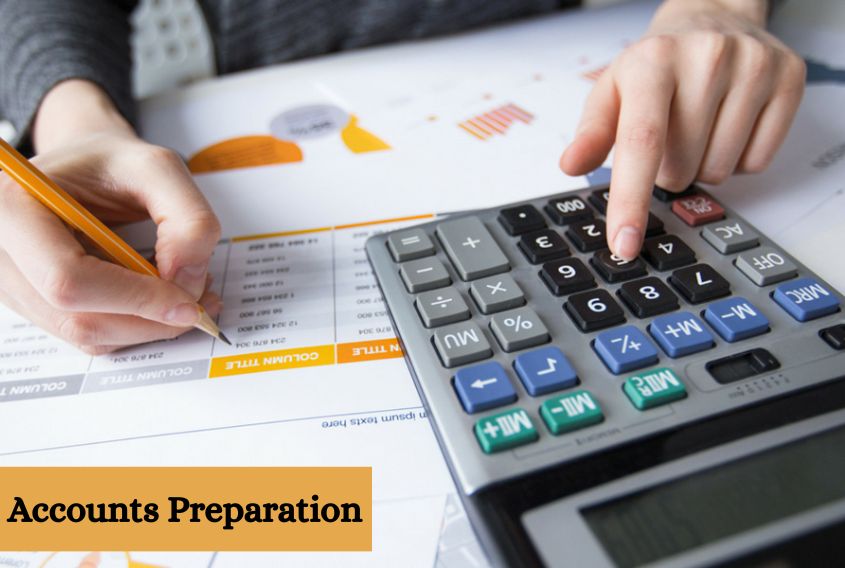Accounts Preparation
The preparation of accounts is a crucial accounting process that involves compiling and organising financial information to create complete financial statements. This activity is fundamental to businesses, as it provides a clear and accurate picture of their performance and financial position over a given period. The process usually begins with the collection of financial data, including transactions, receipts and invoices. Accountants then classify and record these transactions in different accounts, such as assets, liabilities, income and expenditure, using accepted accounting principles. The next step is to make adjusting entries to take account of accruals, prepayments and other adjustments necessary for accurate reporting. Next, financial statements, including the income statement, balance sheet and cash flow statement, are prepared to summarise the financial health of the entity. The final set of financial statements is crucial for internal decision-making, external communication to stakeholders and compliance with regulatory requirements. In essence, the preparation of financial statements is a systematic and meticulous process that provides an overview of a company’s financial activities, contributing to informed decision-making and transparency.

What are The 4 Stages of Preparing Accounts?
The process of preparing accounts generally involves several stages. Although the specific stages may vary depending on the accounting standards and practices followed, here is a general overview of the four key stages:
- Data Collection and Recording: Obtaining financial information from several sources, including bank statements, invoices, receipts, and other financial papers, is the first step in the process. After that, in order to guarantee accuracy and conformity to accounting standards, accountants methodically record these transactions in the accounting system. Sorting transactions into various accounts, including as assets, liabilities, income, and expenses, is part of this process.
- Adjustments and Accruals: Secondly, accountants make the necessary adjustments to the transactions recorded in order to accurately reflect the company’s financial reality. These adjustments include accruals, prepayments, depreciation and any other necessary corrections. Adjustments ensure that the financial statements give a more accurate representation of the company’s financial position and performance by recording income and expenditure in the period to which they relate.
- Financial Statement Preparation: Using the adjusted trial balance, accountants create the financial statements. The main financial statements are the income statement, which presents income and expenses over a given period, the balance sheet, which presents the entity’s assets, liabilities and equity at a given point in time, and the cash flow statement, which describes the sources and uses of cash. These statements provide an overview of the company’s financial health and performance.
- Closing the Books: The final step is to close the accounts for the financial year. This involves setting temporary accounts, such as income and expenditure accounts, to zero and transferring their balances to the retained earnings account. The closing entries provide a fresh start for the next accounting period. In addition, the closing process includes reviewing the financial statements, reconciling the accounts and ensuring that all necessary information and footnotes are included for transparency and compliance purposes.
These four stages in the preparation of the accounts ensure a systematic and accurate representation of a company’s financial activities, which facilitates decision-making, regulatory compliance and external reporting requirements.
Benefits of Good Bookkeeping and Accounts
Good accounting practice offers a myriad of benefits to businesses, whatever their size or sector of activity. Here are just a few of them:
- Financial Transparency
- Compliance with Regulations
- Informed Decision-Making
- Budgeting and Planning
- Credibility with Stakeholders
- Facilitation of Audits
- Tax Planning and Minimization
- Monitoring of Cash Flow
- Early Detection of Issues
- Business Growth and Investment
Good bookkeeping and accounting are fundamental to the financial success and sustainability of a business. They provide the tools for effective financial management, compliance and strategic decision-making.
